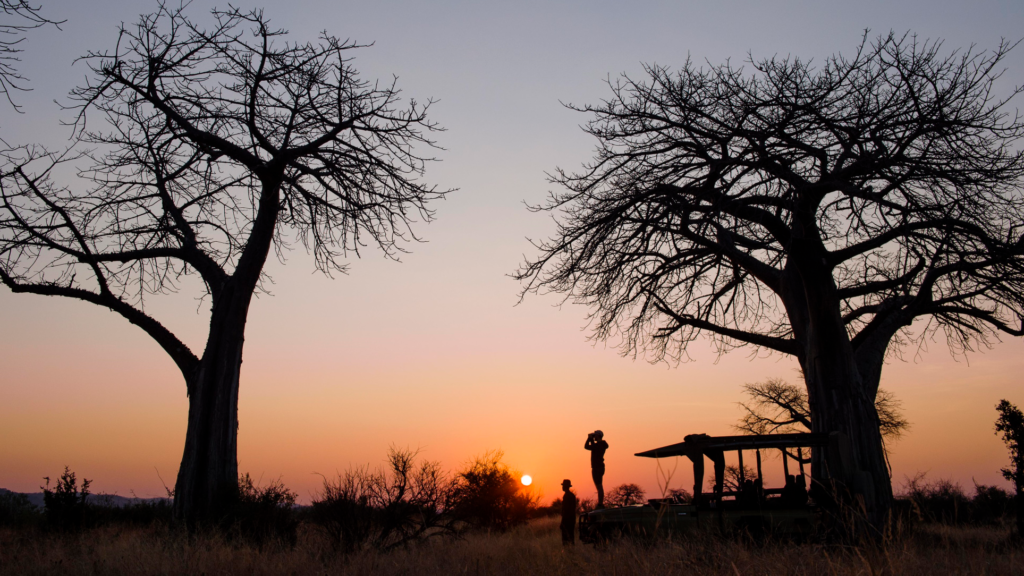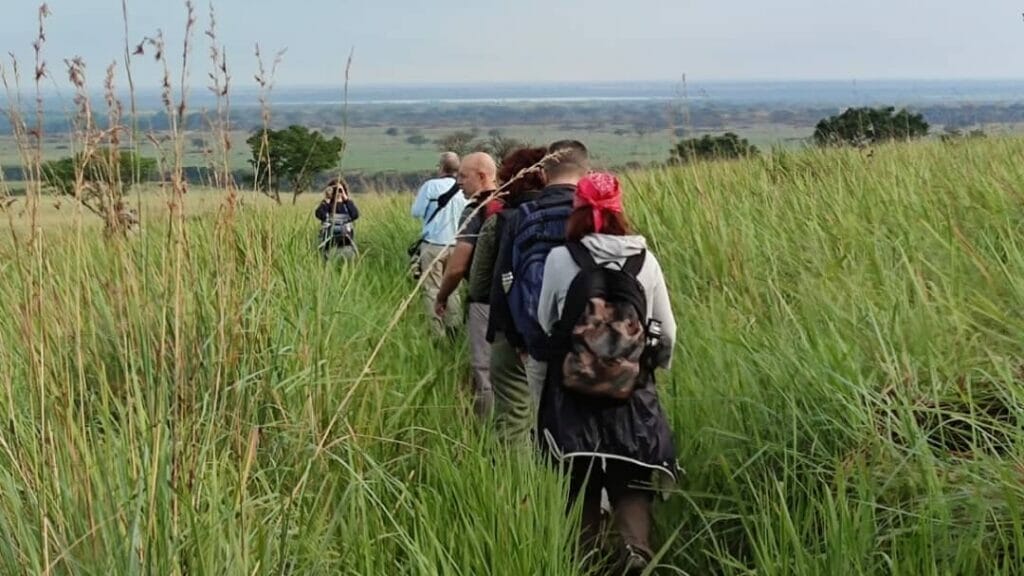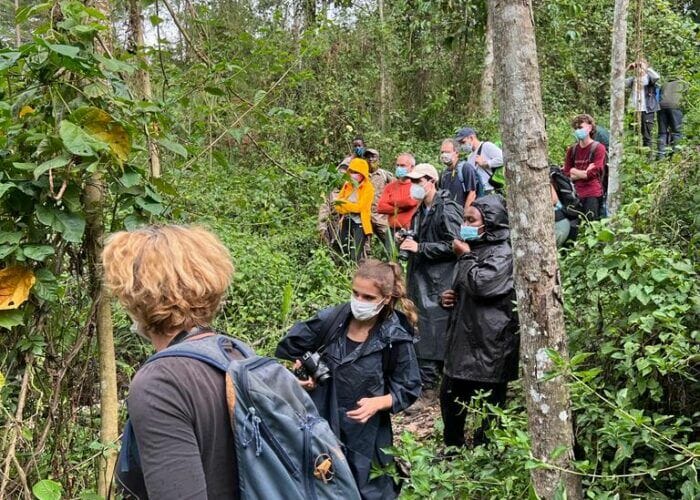Safari exploration has long captured the imagination of adventurers and nature enthusiasts alike. These intrepid individuals ventured into the unknown, braving the wild landscapes of Africa and other parts of the world to discover its diverse wildlife and untouched beauty. Their expeditions not only paved the way for scientific discoveries but also ignited a global fascination with the wonders of the natural world.
In this comprehensive blog post, we will delve into the lives and legacies of famous safari explorers, from the early pioneers who embarked on perilous journeys to the modern conservationists who continue to advocate for the protection of our planet’s biodiversity. By examining their captivating stories, we aim to shed light on the rich history and profound impact of safari exploration.
The Definition and Importance of Safari Explorers

Before we embark on our exploration of famous safari explorers, it is essential to understand what constitutes a safari explorer. A safari explorer is an individual who embarks on expeditions to remote and untamed regions, primarily with the intent of studying and observing wildlife in its natural habitat. These explorers often face numerous challenges, including treacherous terrains, unpredictable weather conditions, and encounters with dangerous animals.
The significance of safari exploration cannot be overstated. These expeditions have played a pivotal role in expanding our knowledge of the natural world, shaping our understanding of different ecosystems, and contributing to the conservation efforts that strive to protect endangered species. Without the bravery and curiosity of these explorers, our understanding of wildlife and their habitats would be far more limited.
Early Pioneers of Safari Exploration
The era of safari exploration was marked by brave individuals who set out on daring expeditions to unravel the mysteries of the African continent. These early pioneers ventured into uncharted territories, armed with their curiosity and an insatiable desire to discover the wonders of wildlife and nature. Their courageous journeys laid the foundation for future exploration and ignited the imaginations of generations to come.
One of the most renowned figures in the realm of safari exploration is David Livingstone. Born in Scotland in 1813, Livingstone dedicated his life to exploring the unexplored corners of Africa. He undertook numerous expeditions from the 1840s until his death in 1873, traversing vast stretches of the continent and documenting his findings. Livingstone’s expeditions were motivated by a dual purpose: to map uncharted territories and to combat the slave trade, which he vehemently opposed. His explorations led to the discovery of the Victoria Falls and the exploration of the Zambezi River, among other significant geographical landmarks.
Another prominent explorer of the time was Henry Morton Stanley. The American-born journalist and explorer embarked on a mission to find the missing Scottish explorer, David Livingstone, in 1871. Stanley’s famous encounter with Livingstone, marked by his now-famous words “Dr. Livingstone, I presume?” propelled him to global fame. Stanley subsequently led several expeditions of his own, including his exploration of the Congo River, which significantly expanded European knowledge of Central Africa. His book, “Through the Dark Continent,” became a bestseller and further fueled public interest in African exploration.
The early pioneers of safari exploration faced a multitude of challenges during their expeditions. They encountered harsh climates, treacherous terrains, and hostile wildlife. Disease and malnutrition were constant threats, as were encounters with local tribes and political unrest. Yet, despite these formidable obstacles, these trailblazers pressed on, driven by their unyielding spirit of adventure and their determination to uncover the secrets of the African continent.
Their expeditions had far-reaching consequences. Not only did they contribute to our understanding of Africa’s wildlife and landscapes, but they also played a pivotal role in exposing the atrocities of the slave trade and advocating for its abolition. The narratives and accounts of these early explorers captivated the public’s imagination, sparking a fascination with the African wilderness and its untamed beauty.
Famous Female Safari Explorers
In an era dominated by societal norms and gender roles, a select group of daring women defied conventions and made their mark in the world of safari exploration. These remarkable individuals challenged the notion that adventure and exploration were exclusively reserved for men, breaking barriers and leaving an indelible mark on the history of wildlife exploration. Let us now celebrate and delve into the extraordinary lives and achievements of some of the most famous female safari explorers.
Mary Kingsley: Courageous Expeditions in West Africa
Mary Kingsley, born in 1862 in England, embarked on a series of daring expeditions to West Africa in the late 19th century. Her travels took her to regions that were largely unexplored by Westerners, venturing deep into the heart of Gabon, Sierra Leone, and Cameroon. Kingsley’s expeditions were characterized by her determination to understand and document the local cultures and wildlife.
Kingsley’s exploration of the Gabonese rainforests was particularly noteworthy. She navigated treacherous rivers, maneuvered through dense vegetation, and encountered various wildlife, including crocodiles and hippos. Her encounters with local tribes provided her with valuable insights into their traditional beliefs and customs, which she documented in her acclaimed book, “Travels in West Africa.”
With her sharp wit and unyielding spirit, Kingsley challenged the prevailing stereotypes and expectations of her time. She fearlessly immersed herself in unfamiliar environments, breaking down barriers and inspiring future generations of female adventurers.
Isabella Bird: Exploring the American West and Asia
Isabella Bird, a 19th-century British explorer and writer, embarked on numerous expeditions across the globe. Known for her indomitable spirit and thirst for adventure, Bird ventured into the American West, Asia, and other regions, documenting her experiences in vivid detail.
Bird’s exploration of the American West in the late 19th century was groundbreaking. She traveled extensively through the Rocky Mountains, encountering Native American tribes and witnessing the breathtaking landscapes of the region. Her book, “A Lady’s Life in the Rocky Mountains,” became a bestseller and offered readers a unique perspective on the untamed beauty of the American frontier.
In addition to her American adventures, Bird explored various parts of Asia, including Japan, China, and India. Her travels in these regions exposed her to diverse cultures, traditions, and landscapes. She fearlessly navigated through challenging terrains, from the rugged mountains of Japan to the remote villages of China. Bird’s writings, such as “Unbeaten Tracks in Japan” and “The Yangtze Valley and Beyond,” captivated readers and provided invaluable insights into these lesser-known regions.
Delia Akeley: Wildlife Conservation in Africa
Delia Akeley, an American explorer and conservationist, dedicated her life to the study and preservation of African wildlife. Born in 1875, Akeley embarked on several expeditions to Africa alongside her husband, Carl Akeley, a renowned taxidermist and conservationist.
Akeley’s expeditions focused on documenting and studying the diverse wildlife of Africa, particularly elephants. She witnessed firsthand the devastating impact of the ivory trade on elephant populations and became a staunch advocate for their protection. Akeley’s expeditions resulted in the collection of invaluable scientific data, including detailed measurements and observations of elephants and other wildlife.
Akeley’s commitment to conservation extended beyond her expeditions. She played a vital role in establishing national parks and wildlife sanctuaries, including the Virunga National Park in the Democratic Republic of Congo. Her efforts to raise awareness about the importance of wildlife conservation and her pioneering work in the field of taxidermy left an enduring legacy.
These pioneering female safari explorers shattered gender barriers, paving the way for future generations of women in the field of exploration and conservation. Their courage, determination, and contributions to wildlife exploration continue to inspire and empower adventurers and conservationists around the world. In the next section, we will shift our focus to the endeavors of modern safari explorers and their impact on wildlife conservation in the 20th and 21st centuries.
Modern Safari Explorers and Conservationists

The 20th and 21st centuries have witnessed the rise of a new generation of safari explorers and conservationists who continue to push the boundaries of exploration while advocating for the protection of our planet’s biodiversity. These modern-day pioneers have built upon the foundations laid by their predecessors, employing advanced technology, scientific methodologies, and a deep sense of environmental stewardship to further our understanding of wildlife and advance conservation efforts. Let us now delve into the endeavors of these remarkable individuals and their impact on the world of safari exploration.
Dian Fossey: Guardian of Mountain Gorillas in Rwanda
Dian Fossey, an American zoologist, dedicated her life to the study and conservation of mountain gorillas in Rwanda. Her groundbreaking research and fierce advocacy efforts played a crucial role in raising awareness about the plight of these endangered primates.
Fossey’s work began in the late 1960s when she established the Karisoke Research Center in the Virunga Mountains of Rwanda. She conducted extensive studies on the behavior, social structure, and ecology of mountain gorillas, becoming one of the world’s leading experts on these magnificent creatures. Fossey’s efforts not only shed light on their complex lives but also exposed the threats they faced from poaching and habitat destruction.
In addition to her scientific contributions, Fossey actively campaigned against the illegal wildlife trade and the killing of gorillas for their body parts. Her unyielding dedication to the protection of mountain gorillas led to the creation of stringent anti-poaching measures and the establishment of the Volcanoes National Park in Rwanda.
Fossey’s life and tragic death continue to inspire conservationists worldwide. Her memoir, “Gorillas in the Mist,” brought international attention to the challenges faced by mountain gorillas and their fragile ecosystems. Through her work, Fossey paved the way for future generations to continue her fight for the survival of these magnificent creatures.
Jane Goodall: Champion of Chimpanzees in Tanzania
Jane Goodall, a British primatologist and anthropologist, is renowned for her groundbreaking research on chimpanzees in Tanzania’s Gombe Stream National Park. As the longest-running study of wild chimpanzees, Goodall’s work has significantly contributed to our understanding of these intelligent and complex beings.
Goodall’s research began in 1960 when she ventured into the forests of Gombe to observe and document the behaviors of chimpanzees. Her meticulous observations challenged long-held beliefs about the uniqueness of human behavior, revealing striking similarities between humans and our closest living relatives. Goodall observed chimpanzees using tools, displaying complex social structures, and exhibiting a range of emotions, challenging the notion that these traits were exclusively human.
Beyond her scientific contributions, Goodall has been a tireless advocate for the conservation of chimpanzees and their habitats. She established the Jane Goodall Institute, which focuses on wildlife research, habitat conservation, and community-centered conservation initiatives. Through her institute, Goodall has worked to empower local communities, promote sustainable practices, and raise awareness about the importance of protecting chimpanzees and their ecosystems.
Goodall’s work has transcended the realm of academia, inspiring generations of scientists, environmentalists, and animal lovers. Her efforts demonstrate the power of individual action and the potential for positive change when fueled by passion and dedication.
Birute Galdikas: Guardian of Orangutans in Borneo
Birute Galdikas, a Canadian primatologist, has dedicated her life to the study and conservation of orangutans in Borneo. Her pioneering research and conservation efforts have shed light on the lives of these critically endangered great apes and the urgent need to protect their habitats.
Galdikas arrived in Borneo in the early 1970s to study orangutans in their natural habitat. She established the Camp Leakey research station in Tanjung Puting National Park, where she conducted long-term studies on orangutan behavior, ecology, and conservation. Galdikas’ research has provided invaluable insights into the complex social structures, tool use, and intelligence of these remarkable primates.
In addition to her scientific work, Galdikas has been a vocal advocate for orangutan conservation. She has actively campaigned against deforestation, illegal logging, and the illegal pet trade, which are major threats to the survival of orangutans in Borneo. Galdikas’ efforts have contributed to the establishment of protected areas and the rehabilitation of orphaned orangutans, ensuring their long-term survival.
Galdikas’ unwavering dedication and passion for orangutans have made her a leading figure in the field of primatology and conservation. Her work serves as a reminder of the urgent need to protect and preserve the habitats of these magnificent creatures.
The contributions of these modern safari explorers and conservationists have significantly advanced our understanding of wildlife, shaped conservation policies, and inspired a global movement to protect our planet’s biodiversity. Their tireless efforts continue to inspire future generations of explorers and conservationists who are committed to safeguarding the natural world. In the next section, we will explore the lasting legacy and influence of famous safari explorers, examining their impact on tourism, conservation efforts, and public perception of wildlife and nature.
Legacy and Influence of Famous Safari Explorers

The legacy of famous safari explorers extends far beyond their individual achievements. Their expeditions and discoveries have had a profound and lasting impact on the realms of tourism, wildlife conservation, and public perception of wildlife and nature. By examining their enduring influence, we can gain a deeper appreciation for the contributions of these remarkable individuals and the transformative power of exploration.
Impact on Tourism and Wildlife Conservation
The expeditions of famous safari explorers have played a pivotal role in shaping the tourism industry, particularly in regions known for their abundant wildlife and natural landscapes. The tales of adventure and discovery shared by these explorers have captivated the imagination of travelers, inspiring them to embark on their own journeys to witness the wonders of the natural world.
The establishment of national parks and protected areas, often influenced by the findings and advocacy of safari explorers, has provided a framework for sustainable tourism and wildlife conservation. These protected areas not only preserve biodiversity but also offer opportunities for travelers to experience wildlife in their natural habitats while supporting local communities.
Safari tourism, with its focus on responsible and eco-friendly practices, has emerged as a vital contributor to local economies and conservation efforts. The revenue generated through safari tourism has been instrumental in funding conservation initiatives, anti-poaching efforts, and community development projects. It serves as a powerful incentive for governments and communities to prioritize the preservation of wildlife and their habitats.
Shaping Public Perception of Wildlife and Nature
The narratives and accounts of famous safari explorers have played a crucial role in shaping public perception and understanding of wildlife and nature. Through their writings, photography, and documentaries, these explorers have provided glimpses into the intricate lives of animals, the fragility of ecosystems, and the urgent need for conservation.
By bringing the wonders of the natural world to the forefront of public consciousness, safari explorers have inspired awe, empathy, and a sense of responsibility towards the environment. Their stories have instilled a deep appreciation for the interconnectedness of all living beings and the importance of protecting biodiversity for future generations.
Furthermore, the work of famous safari explorers has challenged outdated stereotypes and misconceptions about wildlife. Their findings have highlighted the intelligence, social complexity, and emotional depth of animals, forging a deeper understanding of the ethical considerations surrounding wildlife conservation and the need for humane treatment of animals.
Inspiring Future Generations
One of the most enduring legacies of famous safari explorers is their ability to inspire and ignite a sense of wonder and curiosity in future generations. Through their remarkable achievements, these explorers have shown that passion, perseverance, and a deep love for nature can lead to groundbreaking discoveries and create lasting change.
The stories of famous safari explorers have motivated countless individuals to pursue careers in scientific research, wildlife conservation, and environmental advocacy. Their journeys have sparked a sense of adventure and an appreciation for the natural world, encouraging young minds to explore, question, and protect our planet’s biodiversity.
The influence of these explorers extends beyond the field of exploration and conservation. Their endeavors have inspired artists, writers, and filmmakers to create works that celebrate the beauty of wildlife and nature, further amplifying the impact of their legacy on popular culture.
In conclusion, the legacy of famous safari explorers is multifaceted and far-reaching. Their expeditions have not only contributed to scientific knowledge, but they have also shaped tourism practices, conservation efforts, and public perception of wildlife and nature. Their stories continue to inspire and remind us of the inherent value of exploration, conservation, and our responsibility to protect the natural world.
Follow In Their Footsteps With Your Own East Africa Safari
As we reflect on the remarkable lives and achievements of these explorers, we are reminded of the power of curiosity, passion, and the human spirit. Their legacies continue to inspire future generations of adventurers, scientists, and conservationists who are dedicated to unraveling the mysteries of the natural world and protecting its wonders for generations to come.
In the footsteps of these famous safari explorers, we embark on our own journey of discovery and appreciation for the beauty and significance of wildlife and nature. If you’d like to know more about safaris in East Africa, including Uganda gorilla tracking, please reach out to our team here.

